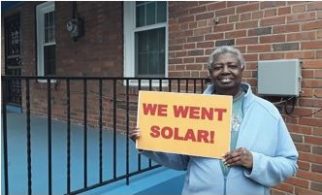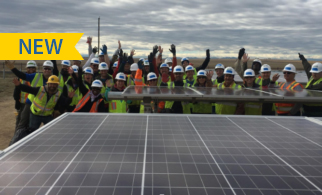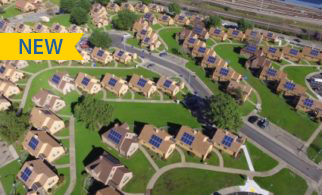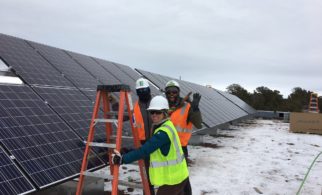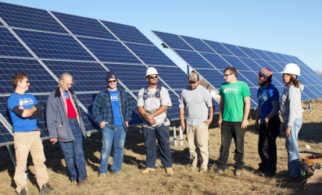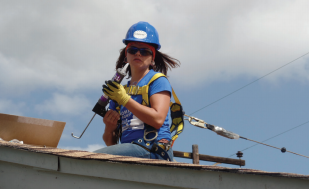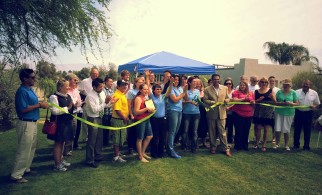District of Columbia
Program Overview:
The District of Columbia’s Solar for All Program is a great example of a comprehensive low-income solar program because it encompasses single-family projects, multifamily affordable housing projects, community solar projects and workforce development.
The program was established by the Renewable Portfolio Standard Expansion Amendment Act of 2016, which expands DC’s solar capacity, increases the amount of solar generated within the District, and provides the benefits of locally-generated solar energy to low-income households, small businesses, nonprofits, and seniors. The program is funded by the Renewable Energy Development Fund (REDF) and administered by the District’s Department of Energy and Environment (DOEE). Specifically, Solar for All will provide the benefits of solar electricity to 100,000 low-income households (at or below 80% Area Median Income), and reduce their energy bills by 50% (based on the 2016 residential rate class average) by 2032.
The first phase of Solar for All was focused on researching and developing the necessary solutions to complete large scale projects in later phases. DOEE announced two Requests for Applications (RFA) for Solar for All Innovation and Expansion Grants in early 2017. $8 million was made available to install 4 to 8 megawatts of new solar capacity on multi family homes, commercial buildings, and non-residential surface spaces, and $5 million was also made available to install 2.5 to 5 megawatts of solar capacity on low-income single-family homes, small business, and owner-occupied nonprofits.
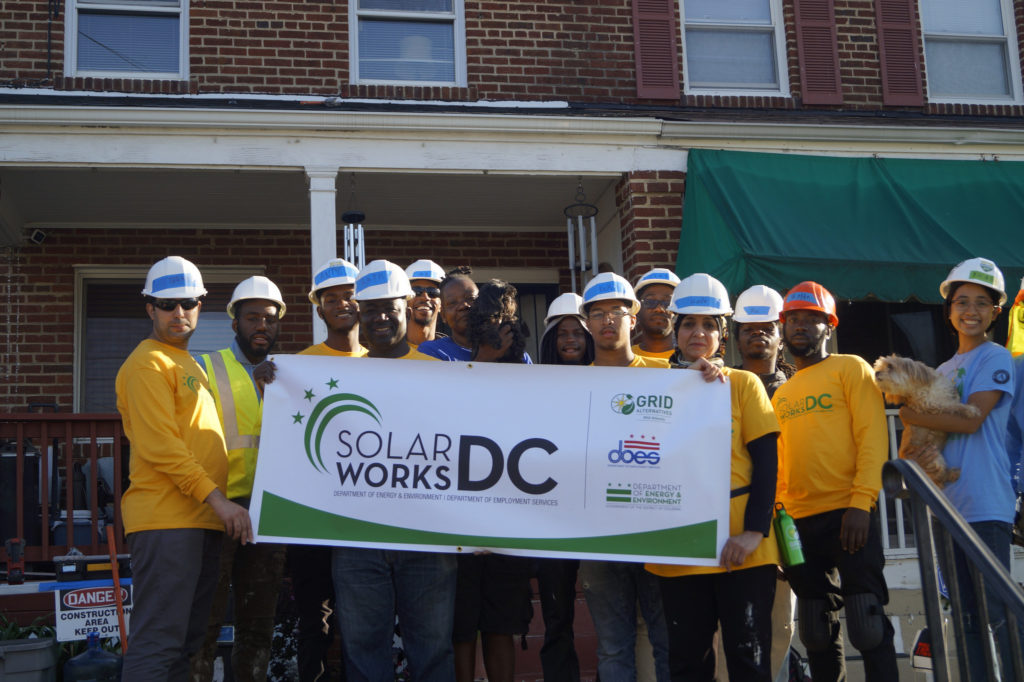
Nine Innovation and Expansion Grants were awarded by DOEE to grantees representing both nonprofit and for-profit entities. As of December 2020 grantees have completed construction and interconnection of projects. Some examples of the completed projects include:
- Solar United Neighbors of D.C., a non-profit organization based in Washington, D.C., implemented their single-family rooftop solar co-op model in 2017 using outreach and engagement methods to build community trust. In 2019 Solar United Neighbors signed contracts with 73 income-qualified homeowners and the final solar installation was completed in September 2019.
- Groundswell’s Shared Power Project added 326 kW of solar capacity to D.C. and 100% of electricity generated from the project will go to benefit 93 low- and moderate-income households. The households receive community solar subscriptions, and resident services at no cost for a minimum of 20 years. Groundswell has partnered with Elevate Energy to provide enrollment services for income qualified customers and subscriber management.
- New Partners Community Solar Corp. (NPCS) takes an innovative approach toward serving low- and moderate-income customers NPCS installed 316 kW on commercial and multifamily rooftops. They created 25-year community solar subscriptions for at least 135 low- and moderate-income households. They used wall mounted panels, panels integrated with green roof, and bi-facial panels that use sun from above and below. Their project also included the first solar plus storage for resiliency in an affordable housing building.
DOEE worked closely with the grantees during the implementation year of Solar for All to address challenges as they showed up.
Solar Works D.C.
Solar Works D.C. is a six-week job training program that teaches participants how to install and maintain solar panels. The program was launched in May 2017 and is a partnership between the District’s DOEE, the Department of Employment Services, and GRID Alternatives Mid-Atlantic. In the first three years of the program, Solar Works DC trained over 250 District residents through 10 cohorts, providing a total of 670 kWs of increased solar capacity that has eased energy burdens for 174 eligible low- and moderate-income households.
Solar Works D.C. includes both classroom instruction and hands-on experience installing solar panels on homes and businesses in low- and moderate-income communities. Part of the Solar for All program is the Solar Works D.C. program, a low-income single family rooftop installation and job training program. The Solar Works program is designed to prepare residents in the District for careers in solar or other related industries, increase the amount of solar in the city, and to reduce the energy costs for qualified low-income residents.
In FY 2020, the Solar for All program installed 11.01 MW of new solar capacity that can provide the benefits of solar energy to 3,103 low- and moderate-income District households. Thus far in FY 2021, the Solar for All program has completed an additional 6 MW of solar, benefitting approximately 1,683 District residents. By the end of FY 2021, DOEE expects the Solar for All program to produce an additional 10.5 MW of solar, serving roughly 3,000 low- and moderate-income households.
Information on this page can be found on the D.C. Solar for All home page and in the Solar for All Annual Report.
D.C has also become a pilot state for the Department of Energy’s National Community Solar Partnership Low-Income Clean Energy Connector, which partners with the U.S. Department of Health and Human Services to make available to all LIHEAP administrators a digital tool that makes community solar with verified savings and strong consumer protections more accessible to households participating in government-run low-income support programs.
Guiding Principles Addressed:
Accessibility and Affordability. Solar for All is a fantastic example of leveraging public funds to deploy the benefits of solar to income-qualified District residents. In this case, REDF, which is primarily funded from alternative compliance payments, demonstrates a significant, long-term revenue stream toward program development to directly overcome financial and other challenges to solar access.
Community Engagement: Before launching the program, DOEE established the Solar for All Task Force, comprising 13 solar professionals in the private and nonprofit sectors, including solar development, affordable housing, and green workforce. DOEE also released a Request for Information (RFI) to solicit ideas on developing a long-term solar program in the District.
Consumer Protection: DOEE works closely with social and environmental justice advocates and other community stakeholders, including the solar industry, to implement Solar for All in a way that protects and educates low-income consumers on the benefits of solar.
Sustainability and Flexibility: DOEE will implement Solar for All in five, three-year phases to ensure the program is sufficiently flexible to adapt to market changes and overcome barriers.
Compatibility and Coordination: DOEE understands the importance of compatibility and coordination of Solar for All with other efforts underway in the District of Columbia. Short-term actions to help achieve Solar for All goals include strategic partnerships, zoning and building code improvements, real estate mapping, public engagement and education, enrollment in the Low Income Home Energy Assistance Program (LIHEAP), and establishment of the DC Green Bank.
Last updated: June 2024
